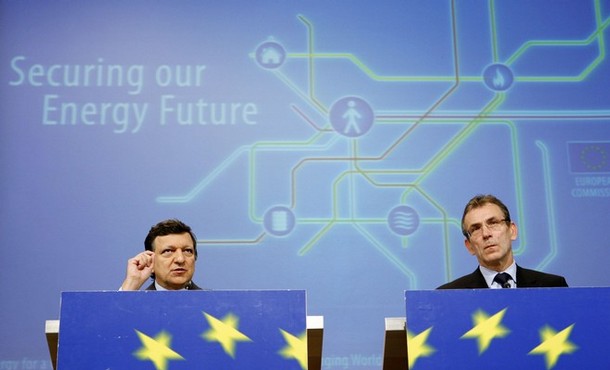Caspian leaders want offers for their gas but instead the EU is holding a series of energy conferences that compete with each other. Europe’s project to create a southern gas corridor bringing Caspian gas to European households is on the verge of collapse. In part that is because Turkey has become a big obstacle to the construction of the Nabucco pipeline and in part it is because of Europe’s flawed response.
Rather than being an equal part of the Nabucco supply chain, Turkey wants to leverage its geographical position and turn itself into a gas provider for Europe – at a very hefty price for Europe. Recep Tayyip Erdoğan, the prime minister of Turkey, is hoping to get away with buying Azeri gas cheaply and re-selling it at an inflated price to Europe. That would not enhance Europe’s energy security and would squeeze profits out of the Caspian states.
Azerbaijan has little leverage over Turkey: it depends on Turkey for political and security support. So Baku is counting on Brussels to get Ankara to play ball. But it is failing to do so – and the reason has less to do with Russia’s efforts to create the rival South Stream pipeline than Europeans are prepared to admit.
In fact, Europe could learn something from how Russia and Iran do things. The current and former Russian presidents have each made personal appearances in the Caspian region, and each time an offer was put on the table. Just a few weeks ago, the Iranians did the same – sending a top-level official to Azerbaijan with an offer in hand.
By contrast, Europe organises energy conferences – one after the other. First there was the Budapest Nabucco conference organised by the Hungarian government in January. At the end of April, Bulgaria will hold an energy summit, just weeks before the first-ever EU-Caspian summit, which the Czech presidency of the EU is trying to organise in Prague for 7 May.
This is confusing Baku and Ashgabat, in Turkmenistan, and irritating those companies that are drilling in the Caspian region and financing exploration and extraction. What they want is someone to travel to the region with an offer in hand to buy Azeri and Turkmen gas. No senior European official, let alone president, has done that.
Mirek Topolánek, the Czech prime minister and chair of the EU’s current presidency, did visit the Caspian region in mid-February to shore up presidential attendance at the EU-Caspian summit. But he should have gone to Turkey first, to get a confirmation from Erdoğan that he will attend. Without Erdoğan there is little prospect of a serious breakthrough; indeed, it was Erdoğan’s last-minute absence that ensured the Budapest conference produced no results. Topolánek can still try to secure Erdoğan’s attendance, but if Bulgaria presses forward with its planned conference in April, there will be no point in the EU holding a summit in May: there will be no new items on the agenda and no one will show up.
Europe’s problem is that there are too many cooks, that it does too much talking and too little acting. This is why having French President Nicolas Sarkozy at the helm of the EU was such a breath of fresh air. The decisions he took and the speed at which he took them were not always to everyone’s liking, but for those six months the EU at least took decisions with real global consequences and responded to crises in a timely manner.
A proactive Europe can be an energy partner in the Caspian. An internally-confused and initiative-obsessed Europe can be no more than a conference organiser.
Sofia should not need its own energy summit to feel part of the European energy supply solution. It would be much better if Bulgaria were to cancel its conference in April and instead send everyone an invitation to Prague for the EU-Caspian summit.
Borut Grgic is a nonresident senior fellow at the Atlantic Council. This article appeared previously appeared in European Voice.
Image: energy-summit-brussels.jpg
